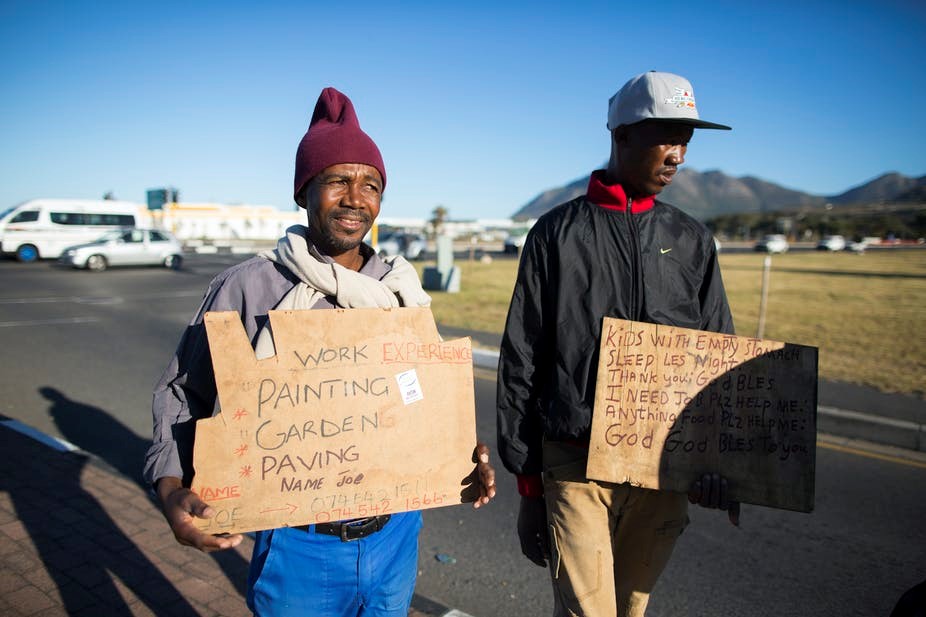SOUTH Africa’s extension of a monthly grant for the jobless means there’ll continue to be twice as many welfare beneficiaries as registered taxpayers, highlighting the challenge the government faces in trying to sustainably support the legions of unemployed and poor.
President Cyril Ramaphosa last week extended the temporary monthly stipend of R350 ($23), first introduced in response to the pandemic in 2020, through to March 2023.
The measure has added about 10.3 million people to the welfare net and was fueled by record unemployment and deepening poverty in the world’s most unequal nation. Civil rights groups and academics have been calling for a permanent basic income grant.
The government can afford the latest measure because high commodity prices have put revenue on course to exceed budget estimates.
Economists, including Old Mutual Investment Group’s Johann Els, expect further extensions, enabling the state to defer a decision on a basic income grant amid significant fiscal constraints.
“If a more permanent expansion of the grant system is decided upon, it is likely that a more permanent revenue stream may have to be considered to limit the drag on the fiscus,” Herman van Papendorp and Sanisha Packirisamy of Momentum Investments said in a note.
Debt funding is considered unpalatable, with loan-service costs already the fastest growing expenditure line item in the budget since 2011. And raising taxes could further erode the tax base in a country where fewer than 15 million individuals out of a working-age population of 40 million are registered taxpayers and those earning more than R1 million a year pay almost 40% of all personal income as levies.
South Africa’s extreme inequality, poverty and unemployment levels are a legacy of the apartheid system that disadvantaged the Black majority.
While the ruling African National Congress has formally adopted five blueprints to boost economic growth and job creation since it came to power almost three decades ago, efforts to usher in policy changes have been stalled by powerful vested interests.
Before the Covid-19 stipend, more than 18 million people, or almost a third of the population, received state aid. South Africa spends 3.3% of gross domestic product on welfare, mostly in the form of child support and pensions.
That’s more than most countries and will amount to R222 billion in the current fiscal year.
- * Bloomberg



